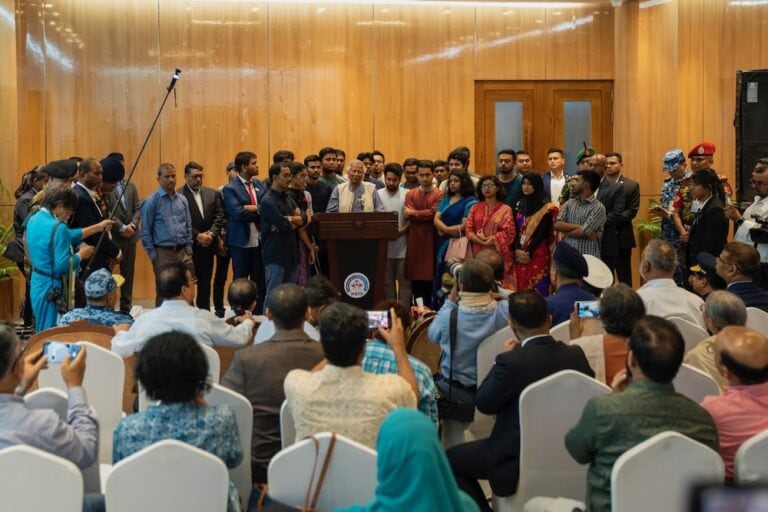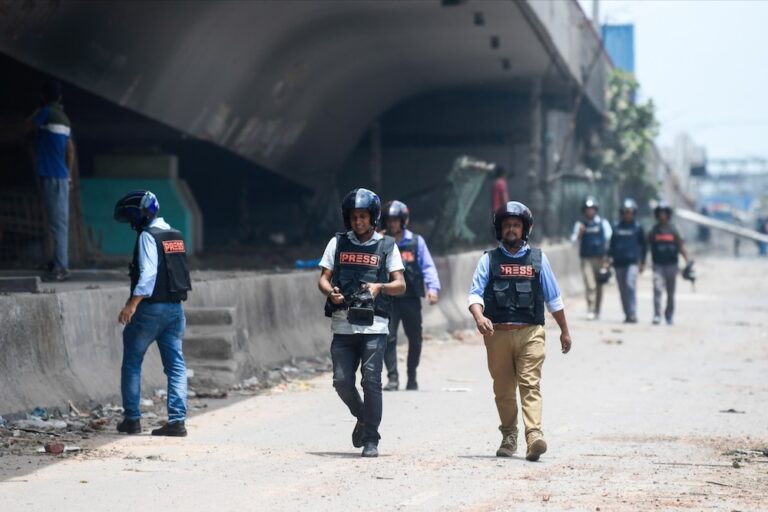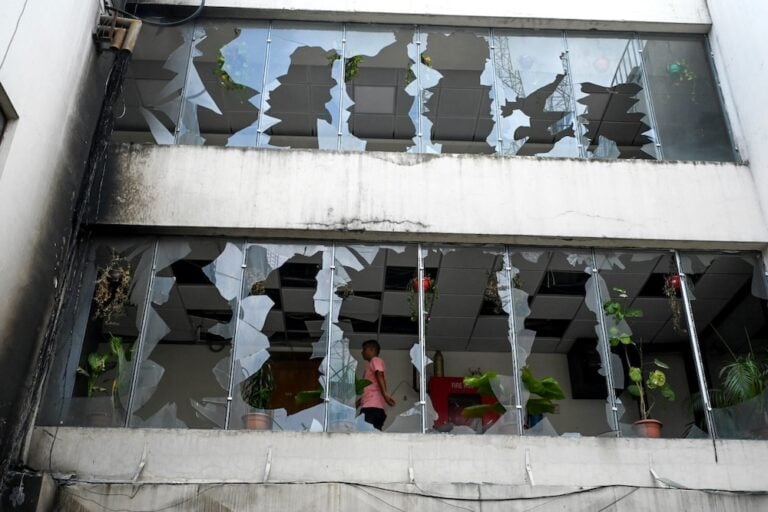Police baton charged a protest organised by the opposition Bangladesh Nationalist Party in Dhaka, injuring several participants and at least five journalists.
(IFJ/IFEX) – May 18, 2012 – The International Federation of Journalists (IFJ) notes with concern the increasing hazards faced by journalists in Bangladesh as political strife intensifies.
On May 16, police baton charged a protest organised by the opposition Bangladesh Nationalist Party (BNP) in the capital city of Dhaka, injuring several participants and at least five journalists.
The demonstration was staged to protest the arrest of a number of senior leaders of the opposition alliance led by the BNP that day. All of the injured journalists were either reporters or camera-persons for local news channels.
On May 14, the nephew of a leading politician and minister in the Bangladesh government assaulted a journalist in the locality of Pabna district, allegedly in retaliation for stories published on his involvement in possible corruption.
Abdullah Al Mamun, the local correspondent for the Bangla daily Kaler Kontho, was admitted to Pabna Medical College Hospital (PMCH) with serious injuries.
The attack came without warning at 10 a.m. while Mamun was at a roadside tea-stall. It involved an estimated ten assailants, armed with sticks and iron rods.
A case has been registered against all those believed responsible. Local journalists have demonstrated outside the offices of the district administration and the police, demanding their immediate arrest.
“Injury to journalists, either in direct retribution for perceived negative reporting or as a consequence of disregard for their safety, is a clear violation of media rights. The press should be able to report freely on events in the public interest without fear for their personal safety”, said the IFJ Asia-Pacific.
“The IFJ joins the Bangladesh journalists’ unions in demanding quick and effective action in both of these cases, to challenge the idea that journalists are fair game in the intensifying conflict between the ruling party and the opposition”.


